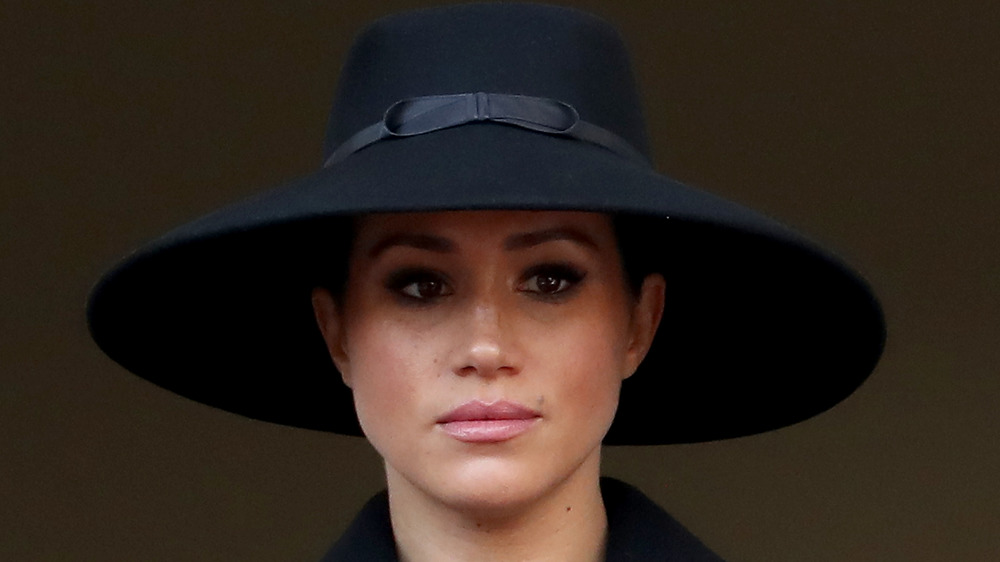The Truth About Meghan Markle's Devastating Miscarriage
In a personal essay for The New York Times, Meghan Markle revealed that she and husband Prince Harry experienced a devastating miscarriage in July 2020. In the opinion piece published on Nov. 25, 2020, Meghan detailed her heartbreaking experience, telling readers she "felt a sharp cramp" before dropping to her knees with son Archie Harrison Mountbatten-Windsor in her arms. She hummed a lullaby "to keep [them] both calm, the cheerful tune a stark contrast to [her] sense that something was not right." She added, "I knew, as I clutched my firstborn child, that I was losing my second."
Meghan continued, sharing a deeply personal moment she had with her husband. "Hours later, I lay in a hospital bed, holding my husband's hand. I felt the clamminess of his palm and kissed his knuckles, wet from both our tears. Staring at the cold white walls, my eyes glazed over. I tried to imagine how we'd heal." As Meghan shared her own tragedy, she referenced the trials and tribulations of 2020. She encouraged others to ask one another, "Are you OK?" like a kind journalist asked her during during a royal tour in 2019 amid public scrutiny, and like she asked Harry after their terrible loss.
Prince Harry struggled with the couple's loss
As Meghan Markle candidly spoke her truth about her miscarriage, she also spoke for her husband, Prince Harry, although royals are known for taking great efforts to conceal their private lives. "Sitting in a hospital bed, watching my husband's heart break as he tried to hold the shattered pieces of mine, I realized that the only way to begin to heal is to first ask, 'Are you OK?'" Meghan wrote in her personal piece for The New York Times. "Losing a child means carrying an almost unbearable grief, experienced by many but talked about by few."
Continuing to share that her experience is more common than people might think, she wrote, "In the pain of our loss, my husband and I discovered that in a room of 100 women, 10 to 20 of them will have suffered from miscarriage." She added, "Yet despite the staggering commonality of this pain, the conversation remains taboo, riddled with (unwarranted) shame, and perpetuating a cycle of solitary mourning."
Hinting that her very personal piece was a big step in the couple's healing process, she wrote, "We have learned that when people ask how any of us are doing, and when they really listen to the answer, with an open heart and mind, the load of grief often becomes lighter — for all of us. In being invited to share our pain, together we take the first steps toward healing."


